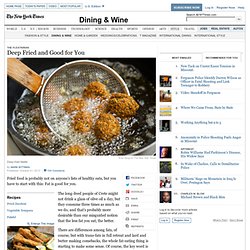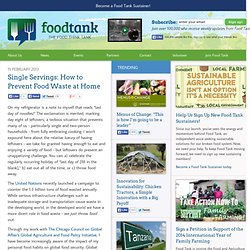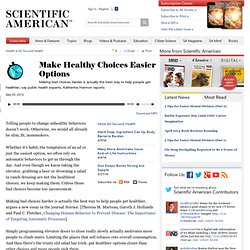

34 Ways To Make Your Stuff Last As Long As Possible. 9 Spices and Herbs that Can Keep You Healthy. BESbswyBESbswy Skip directly to list of articles Yahoo Health Please enable JavaScript JavaScript needs to be enabled in your browser to use Yahoo Health.

Here’s how to turn it on: So What's the Difference Between ALS and… Beth Greenfield This article is featured. Medical Plank: The Ultimate Ab Sculptor Self Fitness 5 Surprising Uses for Aspirin Everyday Health Dust From 9/11 May Have Led to a Lot of Complicated Pregnancies and Premature Births Science of Us Studies Health Mistakes You Make Every Day Men's Health Body The Hashtags Inspiring Body-Positivity Around the World Arielle Miller Robin Williams: Is Parkinson's Disease Linked to Suicide? LiveScience 10 Ways to Burn 100 Cals in 10 Minutes No, Running Isn’t Therapy Runner's World Mental Health This Is Your Skin on Sun Lauren Tuck Skin 9 New Fat Facts That’ll Boost Your Weight Loss Efforts Prevention Weight Loss Why Ramen Noodles Could Cut Your Life Short Nutrition Fashion Blogger Admits to Using Photoshop, Comes Clean With 'Before'…
Deep Fried and Good for You. The long-lived people of Crete might not drink a glass of olive oil a day, but they consume three times as much as we do, and that’s probably more desirable than our misguided notion that the less fat you eat, the better.

There are differences among fats, of course, but with trans-fats in full retreat and lard and butter making comebacks, the whole fat-eating thing is starting to make some sense. Of course, the key word is moderation. You can eat fat as long as it’s high quality and you don’t eat it to the exclusion of plants. That’s one reason you shouldn’t reject deep-frying at home; I do it about once a month.
The second reason is that you know you love it. Frying is thought of as messy, but this can be mitigated by the simplest of measures: using a pot that is heavy, broad and deep, like a well-made stockpot. Which oil? Unless, that is, you’re seasoning tempura with soy sauce, in which case you might choose peanut oil, which is as flavorful as olive oil, but obviously different.
How Long Does Food Last? Shelf Life & Expiration Date Guide. Single Servings: How to Prevent Food Waste at Home. On my refrigerator is a note to myself that reads "last day of noodles!

" The exclamation is merited, marking day eight of leftovers, a tedious situation that prevents many of us - particularly single and two-person households - from fully embracing cooking. I won't expound here about the relative luxury of having leftovers - we take for granted having enough to eat and enjoying a variety of food - but leftovers do present an unappetizing challenge. You can: a) celebrate the regularly occurring holiday of "last day of [fill in the blank]," b) eat out all of the time, or c) throw food away. The United Nations recently launched a campaign to counter the 1.3 billion tons of food wasted annually.
While serious infrastructure challenges such as inadequate storage and transportation cause waste in the developing world, in the developed world we have a more direct role in food waste - we just throw food out. by Elizabeth Rambourger, Guest Contributor Are you part of the food movement? How to Fix Food That's Too Salty.
Make Healthy Choices Easier Options. Telling people to change unhealthy behaviors doesn’t work.

Otherwise, we would all already be slim, fit, nonsmokers. Whether it's habit, the temptation of an ad or just the easiest option, we often rely on automatic behaviors to get us through the day. And even though we know taking the elevator, grabbing a beer or drowning a salad in ranch dressing are not the healthiest choices, we keep making them. Unless those bad choices become too inconvenient. Making bad choices harder is actually the best way to help people get healthier, argues a new essay in the journal Science. Simply programming elevator doors to close really slowly actually motivates more people to climb stairs. Little changes like these reach everyone—not just the people targeted with a health message. —Katherine Harmon [The above text is a transcript of this podcast.]
A food blog dedicated to everything spiralized, including zucchini pasta.